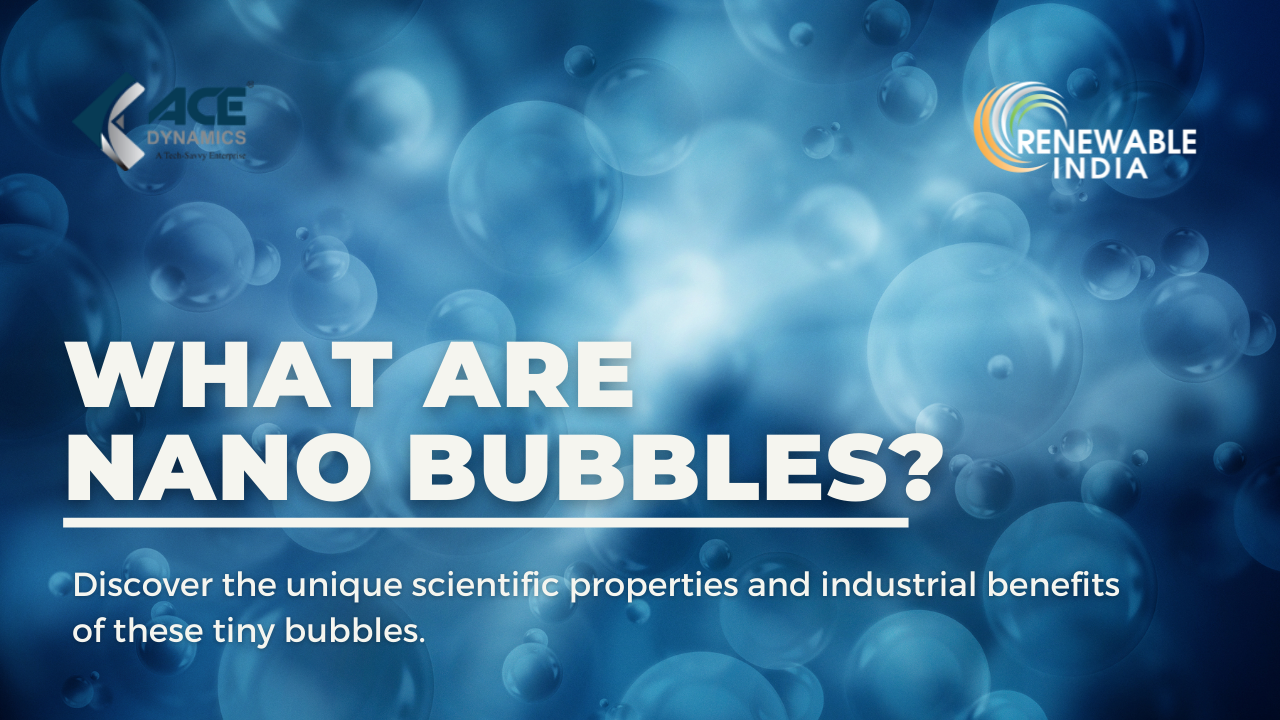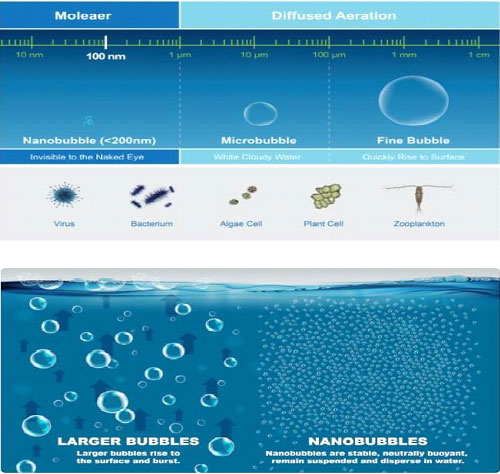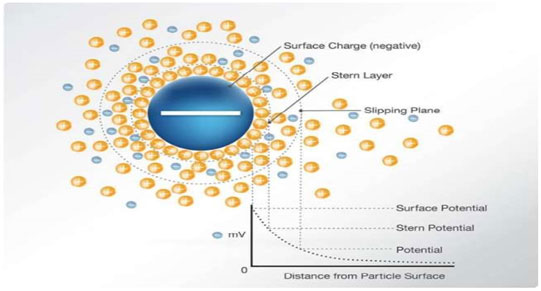
Nano bubbles are 70-120 nanometers in size, 2500 times smaller than a single grain of salt. They can be formed using any gas and injected into any liquid. Due to their size, They exhibit unique properties that improve numerous physical, chemical, and biological processes.
Conventional aeration technologies achieve less than 3% oxygen transfer efficiency at standard conditions (SOTE) per foot of water. Third party testing confirms that Moleaer’s Nano bubble technology achieves >85% SOTE in just 2 feet of water, enabling dissolved oxygen (DO) levels to increase while using far less oxygen than any other aeration technology.
They are superior to all other scalable gas transfer methods because they:
Due to their size and structure, They possess distinct properties that make them particularly effective at improving water quality, enhancing water treatment processes, and improving productivity in industrial and agricultural applications.
They have a strong negative surface charge that keeps them stable in liquid and enables them to continuously participate in and stimulate physical, biological, and chemical interactions.
They are one of the smallest known bubble sizes, roughly 2500 times smaller than a single grain of salt, or less than 200 nanometers (nm) in diameter.
They are neutrally buoyant and can remain suspended in liquid (most commonly water) for weeks without rising to the surface and off-gassing.
With neutral buoyancy Moleaer’s Nano bubbles ensure an enormous total bubble surface area remains in contact with the water to deliver hyper-efficient gas transfer.
Nano bubbles have a strong negative surface charge that prevents them from coalescing and enables them to physically separate small particles and droplets — like emulsified fats, oils, and grease — from water.
When Nano bubbles are stimulated, they destabilize and collapse, releasing the hydroxyl radical. The hydroxyl radical (HO) is one of the strongest known oxidizers commonly used to destroy hard to treat and hard to kill contaminants in water.

Oxidation is a reaction caused by removing an electron from a molecule. The green patina on the copper of the Statue of Liberty is the result of an oxidation reaction. Oxidation is one of the most common methods for treating water and is used broadly via the addition of chemicals to disinfect water and remove contaminants.
Moleaer’s Nano bubbles, as confirmed by third-party testing, produce the hydroxyl radical, one of the strongest known oxidants, using only air and water. The oxidative properties of Moleaer’s Nano bubbles provide a chemical-free means for improving water quality.
Nano bubble oxidation can be used to:
Nano bubbles naturally adhere to suspended, colloidal, and emulsified materials, causing them to clump together so they can be easily removed from water by filtration or flotation. When added to Dissolved Air Flotation (DAF) processes, Nano bubbles can improve solids removal while using up to 90% less energy than air saturators.
Nano bubbles have been used across various physical separation processes to remove: Oil
Nano bubbles effectively prevent and remove unwanted buildup in wet environments. They scour surfaces in food washing, drip lines, swimming pools, and irrigation pipes, reducing the need for harsh chemicals that can damage pipes and filtration systems.
Nano bubbles are proven effective at:
They behave differently from larger bubbles because they’re nanoscopic. All of their beneficial attributes — stability, surface charge, neutral buoyancy, oxidation, etc. — are the result of their size. These unique features enable Nano bubbles to participate in physical, biological, and chemical reactions while also providing the most efficient gas transfer.
Nano bubbles have created a new frontier of science and engineering that is changing how entire industries utilize and treat their water. Moleaer’s technology and fundamental understanding of Nano bubbles is continuously evolving with recent advancements in Nano bubble production methods and ongoing discoveries around how to measure, manipulate, and apply Nano bubble properties to solve customer problems.

Leave a Reply